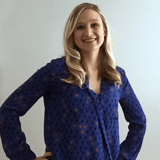Summary
The highest-performing teams have one thing in common: psychological safety — the shared belief that no one on the team will embarrass or punish anyone else for admitting a mistake, asking a question, or offering a new idea. Studies show that psychological safety allows for moderate risk-taking, speaking your mind, creativity, and collaboration — just the types of behavior that lead to successful products and services. Creating psychological safety in a workplace - although at times a challenge - can be done. This interactive talk will present the key action steps that DesignOps professionals can immediately take to boost psychological safety in their design teams and create psychological safety between cross-functional teams.
Key Insights
-
•
Psychological safety is a neurobiological state governed by the autonomic nervous system, reflecting connection and calm.
-
•
Trust and safety differ: safety is a nervous system state, while trust is about relational dynamics.
-
•
Our nervous system moves up and down the 'autonomic ladder' from safe to mobilized (fight/flight) to immobilized (shutdown), impacting thinking and behavior.
-
•
Triggers at work like unexpected meetings, criticism, and toxic vulnerability can push people down the ladder, impairing performance.
-
•
Google’s Project Aristotle found psychological safety, not individual talent, is the key driver of effective, high-performing teams.
-
•
Creating safety requires explicit conversations about what makes individuals feel safe and crafting specific, observable team agreements.
-
•
Connection and co-regulation with others help individuals move back up the autonomic ladder after being triggered.
-
•
Safety includes protections, especially for marginalized groups who face greater systemic risks impacting their ability to be vulnerable.
-
•
Remote work amplifies existing culture; good cultures adapt and maintain safety remotely, toxic cultures worsen.
-
•
Leadership accountability and willingness to acknowledge mistakes are vital to rebuilding trust and psychological safety after breaches.
Notable Quotes
"Safety is a state of our nervous system, when our autonomic nervous system is in a safe state, we feel connected."
"If I make a mistake on our team, it’s not gonna be held against me; my team won’t disconnect from me."
"Our nervous system is ancient; it can’t tell the difference between an angry email and a tiger lurking."
"Psychological safety is the number one factor determining team effectiveness and performance."
"When we’re not safe, our thinking brain — the neocortex — shuts down and operating IQ drops by half."
"Connection means feeling seen, heard, and valued; that’s what creates psychological safety."
"Psychological safety is the foundation; without it you get a culture of transaction and silence."
"Sometimes the entire leadership team quitting at once is a big sign cultural safety is failing."
"Creating safety requires specific, behavioral agreements you can observe and practice."
"Co-regulation means someone who is safe can help bring another out of a triggered state."
Or choose a question:
















More Videos

"Timely interactions that log users out without saving progress cause abandonment, especially for people with disabilities."
Sam ProulxOnline Shopping: Designing an Accessible Experience
June 7, 2023

"We want to build consultants who can solve problems across a variety of projects and clients."
Ignacio MartinezFair and Effective Designer Evaluation
September 25, 2024

"Doubt and fear come up if you haven’t established the right communication and trust."
Sarah Kinkade Mariana Ortiz-ReyesDesign Management Models in the Face of Transformation
June 8, 2022

"We as humans value warmth information in others more than competence information."
Daniel GloydWarming the User Experience: Lessons from America's first and most radical human-centered designers
May 9, 2024

"AI systems can present speculative connections as established facts, so confidence ratings are critical."
Patrick BoehlerFishing for Real Needs: Reimagining Journalism Needs with AI
June 10, 2025

"Our AI tools help with speed and efficiency, and also help save money by reducing redundant research."
Andy Barraclough Betsy NelsonFrom Costly Complexity to Efficient Insights: Why UX Teams Are Switching To Voxpopme
September 23, 2024

"The future of our technology cannot and should not rest solely on the ethics of individual designers."
Alexandra SchmidtWhy Ethics Can't Save Tech
November 18, 2022

"We have to move beyond linear solutions. Complex systems require us to explore our way through problems."
Louis RosenfeldDiscussion: What Operations can teach DesignOps
November 6, 2017

"The product is the reflection of how well teams communicate. Without clear communication, success is impossible."
Mitchell BernsteinOrganizing Chaos: How IBM is Defining Design Systems with Sketch for an Ever-Changing AI Landscape
September 29, 2021
















